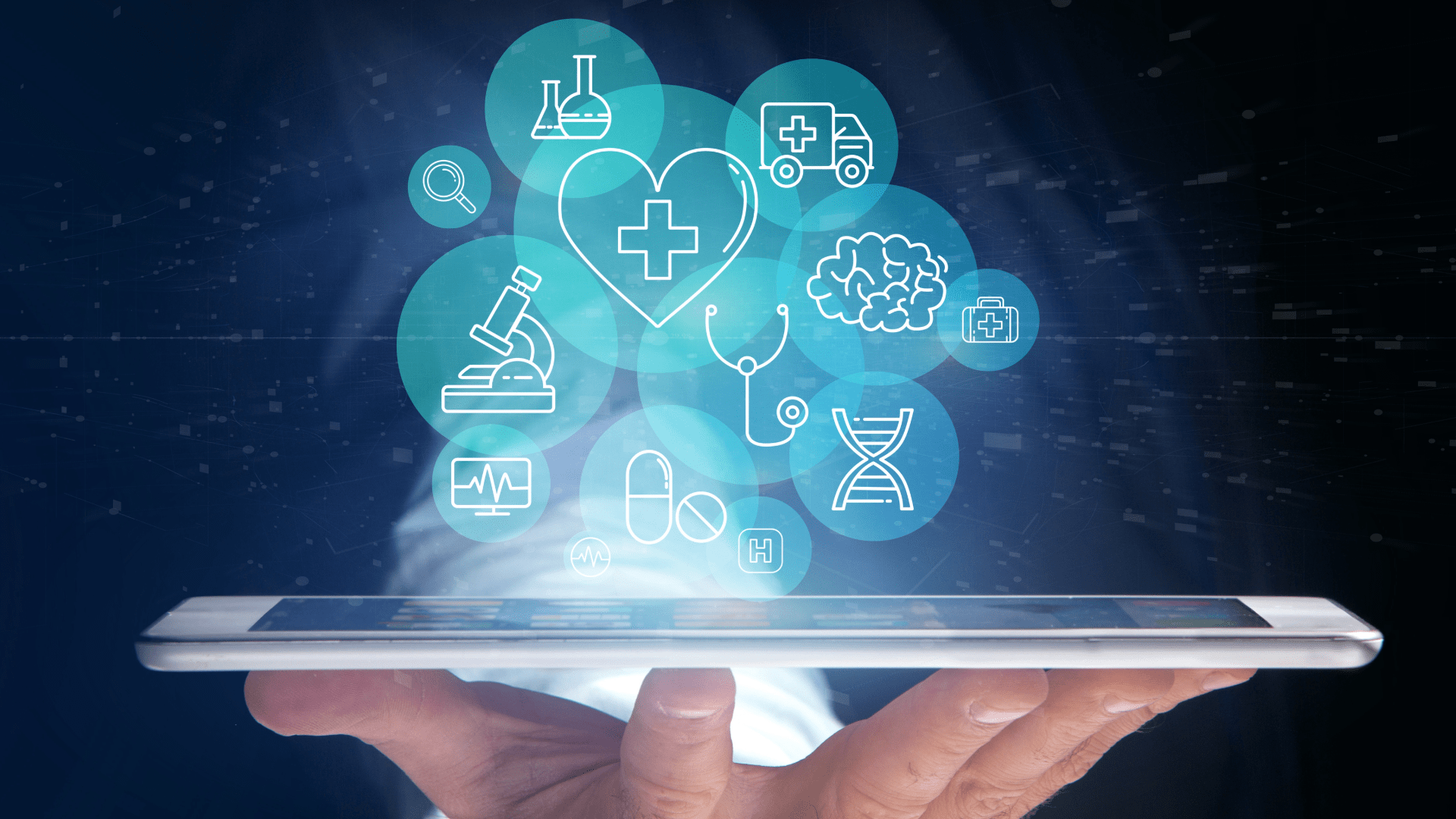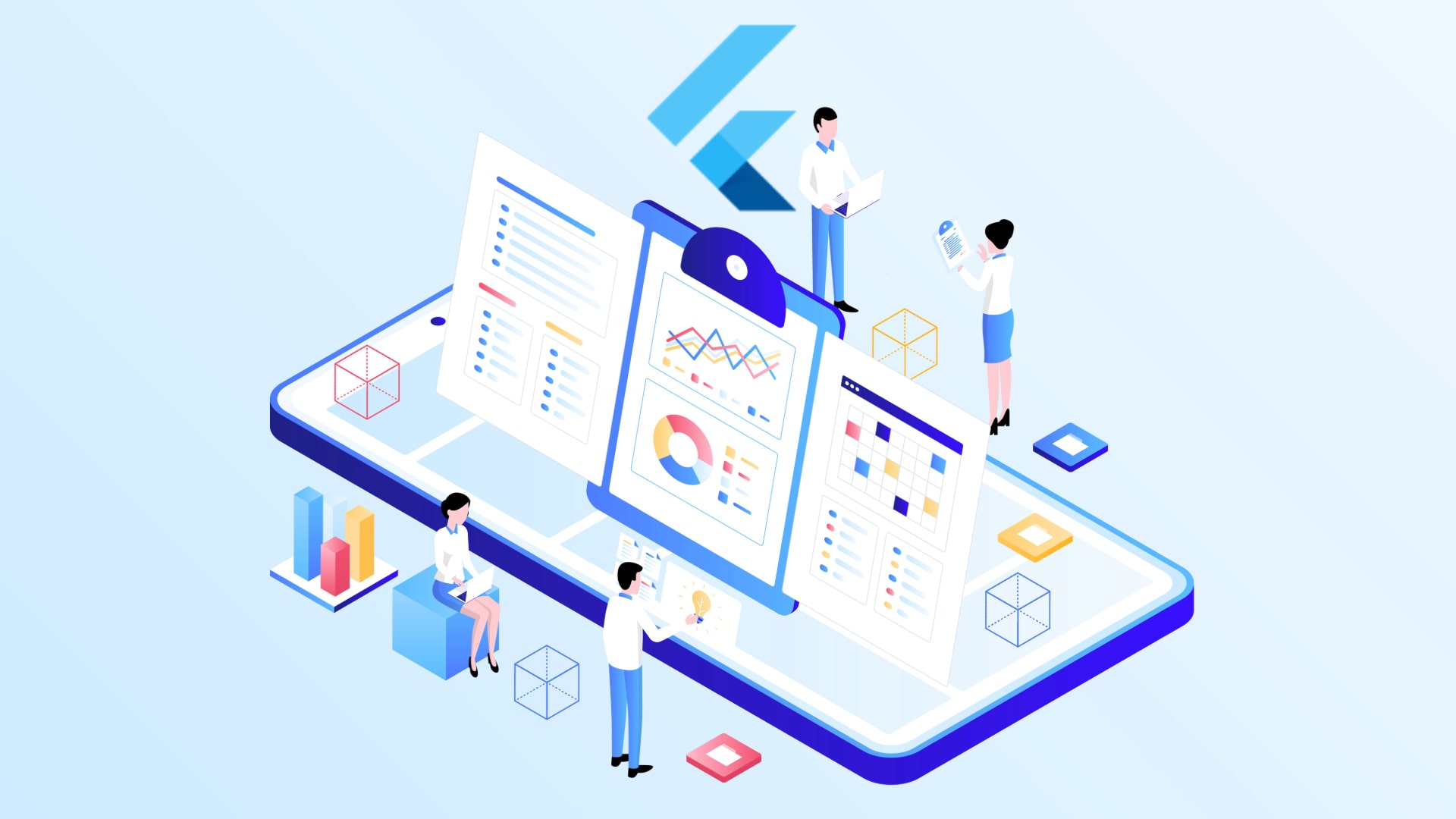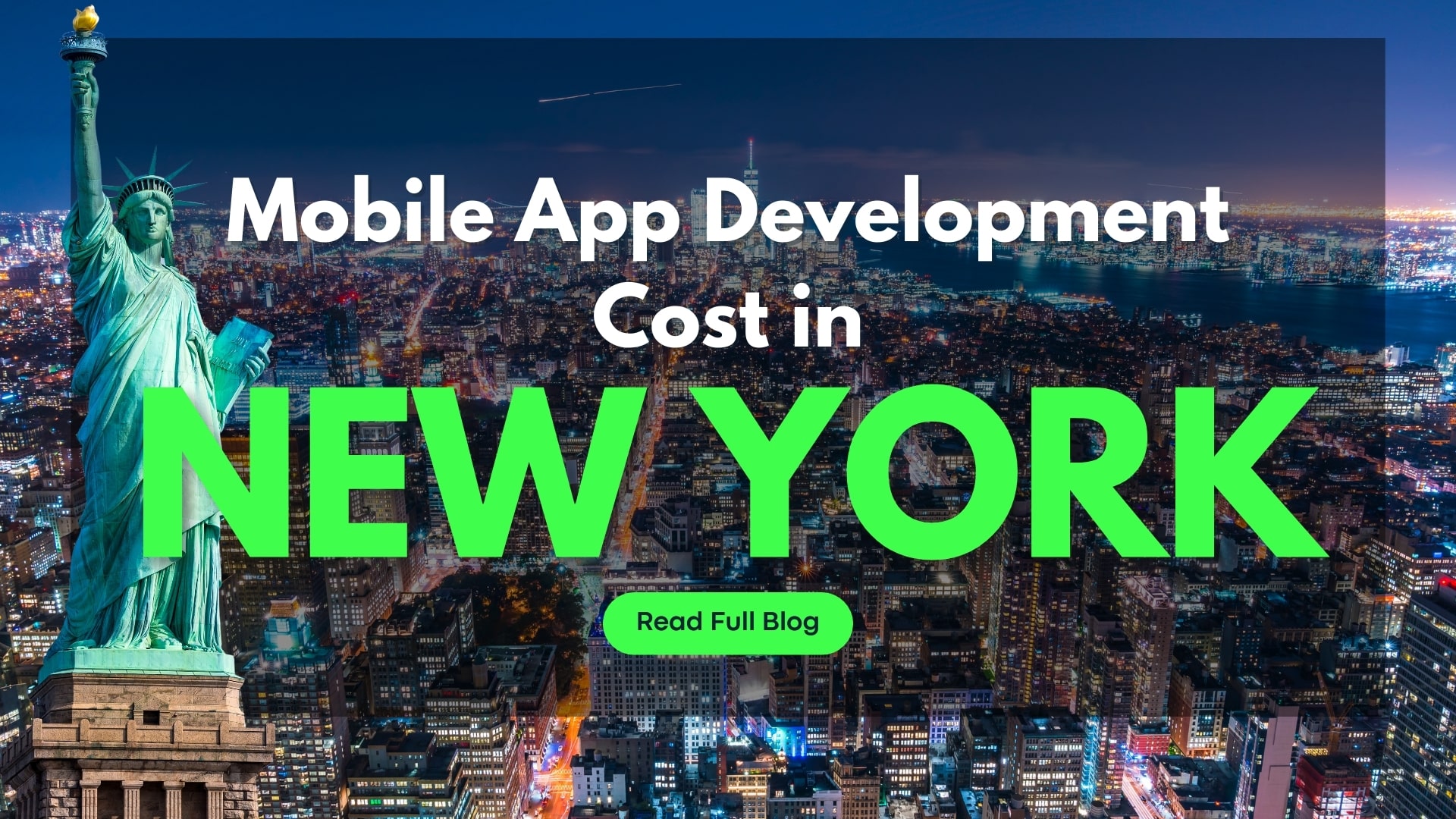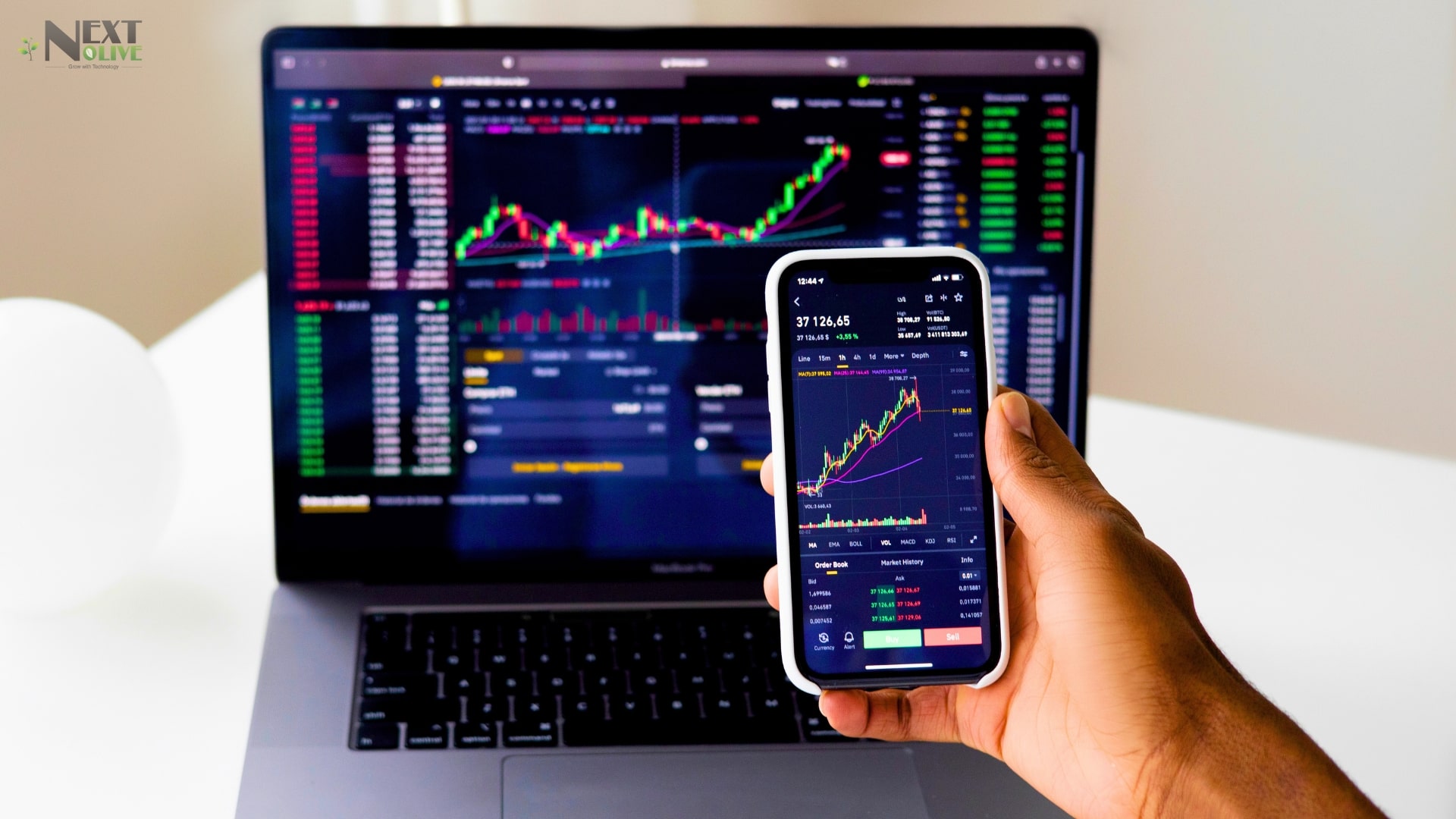Healthcare App Development in 2025: The Complete Guide
In 2025, the demand for hospital mobile applications and innovative healthcare software solutions will reach new peaks, and the companies specializing in healthcare software development will be in the lead. With healthcare becoming increasingly digital, custom healthcare solutions tailored to the unique needs of patients and providers become crucial. From medical device software development to mental health app development, healthcare software developers are doing their best in medical software development to create seamless, secure, and user-friendly applications. Developments like HIPAA-compliant software development ensure that patient data stays protected in an increasingly connected world. The telemedicine application development also offers many opportunities, as telemedicine app developers work on making the platforms more accessible and efficient. As the demand for healthcare mobile application development increases, so does the need for custom healthcare software development, which incurs costs depending on how customized it is. Whether you require EMR software development, EHR software development or bespoke healthcare software solutions, partnering with experienced medical software development companies and healthcare software developers ensures you get reliable, HIPAA-compliant app development for a future-proof healthcare ecosystem. This guide will help you to know everything about healthcare app development.
Table of Contents
ToggleWhat is a healthcare app?
A healthcare application is a strong tool, intended to improve patient care, make healthcare activities easy, and make managing one’s health more efficient. In this digital time, healthcare software development companies take the lead in healthcare app development services with healthcare industry needs in focus. Be it a custom healthcare software solution or health care mobile apps, such developers offer the complete service of healthcare software development. A healthcare app developer creates applications on all scales, from the provider side to the patient end: telemedicine, and appointment scheduling, which makes health care closer and within reach. Custom software development for health care meets the specific needs of a practice or medical facility, resulting in seamless integration across systems. Mobile Applications and Health Care Industries: Healthcare mobile app developers are changing the way patients and doctors interact through Android healthcare apps or specialized healthcare mobile applications meant for patients. With companies addressing the healthcare mobile app needs of people seeking holistic health services, it is conceivable to deliver intuitive, secure, functional, and outcome-friendly health-related mobile applications. It includes Android healthcare application development and general healthcare app development, which is achieved through these bespoke healthcare software development services and custom solutions that mold healthcare delivery.
{A} Types of Healthcare apps
[1] Fitness and Wellness Apps
The fitness and wellness application assists in maintaining a healthy, balanced lifestyle in the user as it can track the workout, sleep, and levels of nutrition. From the features of guided meditation to personalized plans integrated with wearables for keeping fit and staying healthy, simple, and convenient.
[2] Chronic Disease Management Apps
Supporting users with managing chronic conditions, these track symptoms, medications, and follow-up appointments. They provide instantaneous insights so that users can constantly be ahead of their health plans.
[3] Medication Management Apps
Medication management apps help users never miss a dose with features such as reminders, dosage tracking, and prescription records. They make treatment regimens easier to follow to improve medication adherence.
{B} Features of healthcare apps
[1] Easy Appointment Scheduling
With real-time appointment booking, you can get to know what’s available or if the selected doctor fits into your plan. They even remind you so you can never miss it again: it is about having the concierge right in your pocket.
[2] Personalized Health Insights
Healthcare apps are akin to your digital wellness buddy at present. They track your heart rate, monitor your fit activities, and even analyze patterns of sleep. These apps give you customized tips on health. It may be reminding you to drink water or maybe nudging you to complete that day’s steps, and the control is yours in health, as you would like to be.
[3] Medication Management
Life becomes hectic at times, and you forget to take your medications. Healthcare applications act as assistants, reminding you of your pills, refills, and dosages. Some allow you to set reminders, while others allow direct connectivity to pharmacies so that you can have an easy refill. You feel like having a virtual nurse watching over you.
[4] Detailed Medical History
File searching for prescriptions or lab reports is something of the past now. Through healthcare apps, you can store and access your medical history, and it’s safe to share it with whomever you need a second opinion from. Its simplicity and efficiency rolled into one feature.
[5] Emergency Response
In case of emergencies, every second counts. Most health apps contain an emergency feature that would get you in touch with an ambulance or nearby hospitals directly. Some can even share your location with your emergency contacts so help will reach you sooner.
[6] Mental Health Support
Apps recognize this and feature guided meditation and stress management tips, and even access to licensed therapists. This will ensure that mental health will be treated equally to physical health.
{3} Advantages of Health applications
[1] Ready Access to Doctors
- Availability of doctors for video calls and chats at any time, anywhere
- Traveling or long queues are not required here.
[2] Customized Health Tracking
- The application tracks the steps taken, calories burned, amount of sleep, and heartbeats.
- Get tailored recommendations based on your lifestyle, too.
[3] Reminders for Medications
- Never forget to take medicine with automatic reminders, ever again.
[4] Support for Mental Health
- Apps have guided meditation, stress relief, and even counselors.
[5] Help with Chronic Conditions
- Track how a disease is being healed: like diabetes or high blood pressure by keeping track of symptoms.
[6] Promotes Preventive Care
- Informs you of health dangers and how to remain healthy.
[7] Saves Time and Money
- Saves you clinic visits and money spent on health care.
[8] Emergency Assistance
- Quick-dial access to emergency services.
{4} Some notable examples
- MyFitnessPal
- Headspace
- Teladoc Health
- Fitbit
- BetterHelp
[2] What is a medical app?
A medical app is a special software solution designed to provide healthcare services by offering tools that monitor, diagnose, and treat health conditions. These may be simple symptom checkers or complex mobile medical applications linking patients with health care providers. Creating them in the medical software development world includes Medical Device Software Development Teams that bring innovations regarding proper regulatory standards efficient management, and secured data handling. Key functions of a medical developer who plays an important part in medical application development where doctors will build applications that get incorporated within medical devices, with Electronic Health Records, and patient management. For those interested in mobile medical apps for patients, medical mobile development opens up an exciting frontier, and mobile medical app developers are working hard to create not only user-friendly but also very effective solutions that improve the outcomes of the patients. Whether it is developing a medical software application for Android or iOS, medical software development services keep advancing to make health care more accessible and efficient. With medical mobile app development, both doctors and patients benefit from the convenience and real-time communication these apps provide. Medical software development firms and medical app developers are paving the way for the next generation of healthcare technology.
{1} Medical App Types
[1] Diet and Nutrition Apps
Diet and nutrition apps will enable the user to maintain a healthy diet by planning meals, suggesting recipes, and monitoring calories. They can read barcodes, offer nutritional information, and guide the user on better food choices tailored to health needs.
[2] Pregnancy and Baby Care Apps
Pregnancy and baby care apps provide detailed information for expectant parents on fetal development, prenatal care, and postnatal tips. In addition, they follow milestones and appointment schedules and give baby care advice to smooth the journey from pregnancy through parenthood.
[3] Symptom Checker Apps
This symptom-checking app allows the user to input their symptoms for analysis of possible conditions. Although they never substitute the diagnosis made by medical practitioners, such apps give invaluable insights into what will eventually guide the user toward medical attention if necessary.
[4] Applications for Chronic Disease Management
Applications for chronic diseases are designed for chronic health conditions, such as diabetes, asthma, or high blood pressure. They allow users to track symptoms, medication, and reminders for appointments. Of great importance, they enhance patient engagement and management of the disease over time.
[5] Health Insurance Apps
It simplifies the management of medical insurance and helps keep track of claims, locate doctors within their network, and understand policy details. Health insurance apps help make healthcare easier to manage, where users can quickly find information that will help guide their decisions about their coverage.
{2} Features of medical apps
[1] Telemedicine Integration
Medical apps can allow patients to consult doctors remotely through video calls or chats. This makes healthcare accessible. For busy people or those in rural areas, this feature is a game-changer as they no longer have to spend a lot of time traveling or waiting.
[2] Appointment Scheduling
The days of having to wait on hold for an appointment are gone. It is possible to book, cancel, or reschedule appointments with a few simple taps through medical apps, all the way to making both patients and healthcare providers much easier to deal with.
[3] Medication Reminders
Medical apps assist patients with tracking drugs so that they may never skip a dose again. Getting reminders and customizable schedules increases the ease with which these prescriptions are managed and is especially useful for chronic disorder patients.
[4] Health Monitoring
Many medical applications include devices monitoring the vital signs of the patient, like heart rate, blood pressure, and sleep. The real-time data can make users aware of their health condition and thus facilitate more effective decisions on the part of the doctors.
[5] Secure Medical Records
Medical applications provide a safe online space for storing personal health information, from test results to prescriptions. Users can always access this data, thus being prepared for any doctor’s visit or emergency.
{3} Advantages of medical apps
[1] Enhanced Accessibility
- Easy access to health care services, consultations, and appointments from anywhere.
[2] Faster, Accurate Diagnoses
- AI and machine learning aid in rapid and accurate diagnosis, leading to better treatment results.
[3] Improved Patient Engagement
- Personalized health advice, medication reminders, and instant access to medical records motivate patients to be more proactive in their healthcare management.
[4] Cost Efficiency
- Virtual consultations and telemedicine reduce healthcare costs, providing affordable care services.
[5] Better Chronic Disease Management
- Applications will allow tracking of vital signs and will alert patients when readings are irregular, thus allowing timely intervention.
[6] Smooth Communication
- It will allow smooth communication among healthcare providers to ensure that care is coordinated.
[7] Privacy and Security
- Patient information will be safeguarded through data encryption and secure storage.
[8] Support for Mental Health
- Patient information will be safeguarded through data encryption and secure storage.
{4} Some notable examples
- MyChart
- Epocrates
- Medisafe
- Headspace
- Ada Health
[3] What is a telehealth app?
A telehealth app is a way to connect with health providers so that a patient may seek medical care through such means, hence bypassing physical visitations. In turn, through such applications, an individual may get consultation services from a doctor, have them diagnosed, or receive prescription prescriptions over a video call, instant messaging, or even a virtual check-up. This technology is especially useful for people who live in rural or underserved areas, for people with busy schedules, or for those who are confined to their homes because of health reasons. Telehealth apps are truly convenient, as patients can attend to minor illnesses, routine check-ups, or follow-up appointments from the comfort of their own homes. They decrease the travel time and frustration from waiting rooms in addition to the pressure applied on health facilities due to reduced physical visits. Telehealth applications increase easier access and allow continuing maintenance of a continuity treatment plan, chronic problems, or even mental issues. This way, telehealth applications are an improvement and an adaptable means that health care can come through while trying to be very efficient and customized in serving medical care. They have made access to care by patients at any particular time easier.
{1} Types of telehealth apps
[1] Virtual Consultation Apps
It offers patients an opportunity to make video calls, voice chat, or text calls with their health care providers, hence easily reaching out to a consultation in the shortest time possible without necessarily moving from where they are located.
[2] Mental Health and Therapy Apps
Mental health support apps also include virtual therapy sessions and mood tracking, as well as wellness tools, offering to cure anxiety, depression, or other mental health problems via live therapy or guided self-help.
[3] Chronic Care Management Apps
These apps monitor chronic diseases. Synchronized with wearable devices, it provides real-time data directly to healthcare providers so that the treatment plan can be revised and updated to bring a real-time picture at any point in time.
[4] Prescription and Pharmacy Apps
Prescription and pharmacy apps streamline the process of getting medication by enabling remote prescriptions and home delivery. They also provide medication reminders and pharmaceutical counseling for higher adherence and ease of use.
[5] Remote Patient Monitoring (RPM) Apps
RPM apps track the health metrics of patients, including blood pressure and heart rate, by using connected devices. These apps allow healthcare providers to monitor patient conditions from a distance and intervene early when necessary to reduce hospital visits and improve patient outcomes.
{2} Features of telehealth apps
[1] Virtual Consultations
Telehealth apps allow patients to consult doctors face-to-face through video calls, bringing medical expertise to the comfort of their homes. This saves travel time and allows for easy access to care.
[2] Secure Messaging
Telehealth apps give patients the chance to connect with healthcare providers through secure encrypted messaging. The health-related discussions are therefore kept confidential, providing patients with a sense of comfort during such conversations.
[3] Appointment Scheduling
These applications offer easy bookings: booking, rescheduling, and cancellation of appointments from a user’s smartphone. This makes it easier while shortening the waiting time in clinics and improving health accessibility.
[4] Health Record Access
Telehealth applications help patients have access to medical history, lab results, prescriptions, and treatment plans through mobile devices. This enables an individual to monitor his or her journey and be able to give critical information to doctors at their virtual visit.
[5] Prescription Management
Through telehealth apps, patients can avail of digital prescriptions directly sent to their pharmacies, reducing errors and avoiding physical paperwork, while the medication is always available when required.
{3} Advantages of telehealth apps
[1] Convenient Access to Healthcare
The convenience of telehealth apps gives the utmost ease to the patients since they can access healthcare providers while at home. Within just a few taps, one is in direct contact with the doctors, thus eliminating the long commutes and waiting times.
[2] Economical Healthcare Solutions
There will be fewer traveling expenses, office space, and overheads of administration result in cutting down health costs for patients as well as providers. This is an inexpensive choice, especially for those not with access to in-person services.
[3] Enhanced Patient Participation
Telehealth applications make a patient more involved in healthcare. With the help of appointment reminders, prescription tracking, and easy communication with the healthcare service provider, patients are not only more involved but also informed about their health.
[4] Access to Specialists
Telehealth provides easy access to specialists across geographical boundaries. The issue is not that people have to stay in remote areas or big cities. They can easily consult the advice and opinions of health care experts without long-distance traveling.
[5] Better Mental Health Support
Telehealth apps are the new revolution in mental health services. They are easy to access, private, and flexible means of getting counseling, therapy, and psychiatric support at home to manage one’s mental well-being.
[6] Faster Medical Response
Telehealth enables patients to have instant responses to any medical queries they have. For instance, in non-emergency cases, answers can be provided promptly. Doctors can assess your symptoms, give advice, or prescribe drugs that can accelerate the recovery process without spending long hours.
[7] Enhanced Monitoring of Chronic Conditions
Telehealth apps make it easier to manage chronic conditions by using continuous health tracking. This enables doctors to readjust the treatments right away; thus, the chances of developing complications are lessened. This enhances management.
[8] Personalized Care
Telehealth apps provide more patient-specific care through data from patient interactions. Healthcare provider’s access to history and preferences can provide a personalized care experience, which thus enhances satisfaction and outcomes with patients. This allows the real-time data to enable doctors to adjust the treatments promptly, hence improving the management and reducing the chances of complications.
[8] Personalized Care
Telehealth apps offer more tailored treatment using data from patient interactions. By accessing medical history and preferences, a healthcare provider can deliver a more personalized care experience, thereby enhancing patient satisfaction and outcomes.
{4} Some notable examples
- Teladoc Health
- Amwell
- Doctor on Demand
- MDLive
- Babylon Health
The difference between healthcare app development, medical app development, telemedicine app development, and telehealth app development
Under the key aspect of “Primary focus,” Healthcare apps “Focus on general health,” Medical apps “Focus on medical,” Telemedicine apps have an “Emphasis on doctor-patient,” and Telehealth apps provide “Remote healthcare.” In terms of “Users,” Healthcare apps serve “Patients, Hospitals, etc,” Medical apps cater to “Nurses, Doctors, and Students,” Telemedicine apps address both “Patients and healthcare providers,” and Telehealth apps are utilized by “Patients, healthcare providers, and caregivers.” Regarding “Features,” Healthcare apps include “Diverse health tools,” Medical apps contain “Medical/Diagnostic tools,” Telemedicine apps enable “Virtual consultations,” and Telehealth apps encompass “All features of telemedicine + remote monitoring.” Finally, looking at “Use case examples,” Healthcare apps are often used for “Fitness and health tracking,” Medical apps assist in “Surgery planning,” Telemedicine apps facilitate “Online diagnosis,” and Telehealth apps support “Chronic care management.”
Importance of healthcare app development for businesses
The speed at which organizations in different industries around the globe are implementing mobile solutions parallels the rapid digital era being experienced today. This aspect of human well-being healthcare is embracing technological change through improved patient care, procedural efficiency, and convenient services. Mobile health applications become a new way to allow innovation leadership for businesses in bringing value to both the patient and provider.
[1] Improved Patient Experience
Healthcare mobile applications make it easier to access medical services, such as scheduling appointments, tracking health, and even teleconsultations. It thereby increases convenience, satisfaction, and trust in businesses that offer the service of personalized health care.
[2] Provider Efficiency
Custom healthcare software also enables providers to schedule their tasks, manage patient information, and even provide telemedicine. The use of custom applications reduces errors, saves more time, and makes the health care delivery system more efficient. Investment in healthcare application development is going to generate revenue streams for businesses through subscription services, digital health tools, and telemedicine platforms. With the growth of mobile solutions for healthcare, an innovative business can have much more than a high return on investment.
[3] How Custom Healthcare Software Development Promotes Innovation
From Artificial Intelligence Development in diagnostics to wearables, tailored solutions help healthcare businesses face the challenges ahead, improve patient care, and become front runners in medical innovation.
[4] Role of Mobile Applications in Revolutionizing Healthcare
Mobile applications provide immediate access to information, remote consultations, and better health outcomes. Businesses can revolutionize how patients interact with doctors by using healthcare apps to reach many more people and make healthcare accessible to everyone.
[5] Choosing the Right Partner for Healthcare App Development
A good healthcare app development company should ensure compliance, security, and scalability. Experienced developers create solutions that are user-friendly, and customized to the unique needs of the healthcare industry.
[6] Why Healthcare Apps Will Be a Necessity for the Future
Mobile healthcare apps will ensure ease and efficiency in the future. These will position your business among the leading figures in such a fast-emerging impactful sector.
Healthcare mobile app development process
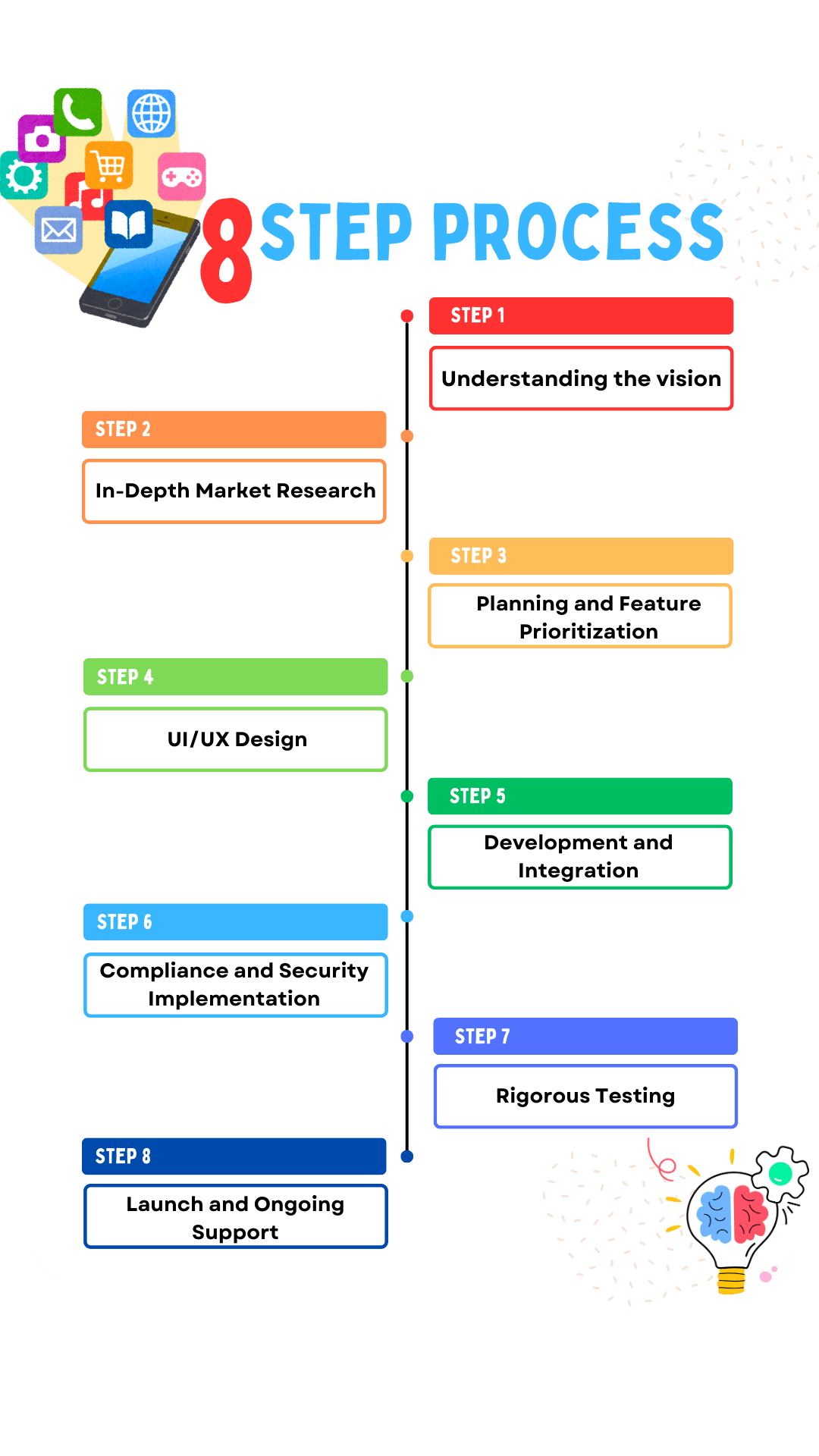
[1] Understanding the Vision
The process begins with first knowing deeply what an application is going to do. Usually, the core object of an app and where or what it can help find will lead the way from working through the objectives the developers collaborate closely in conjunction with a stakeholder. Be it enhancing patient care, improving telemedicine capabilities, or optimizing hospital operations, this stage is the foundation of meaningful solutions.
[2] In-Depth Market Research
The focus area of developers is developing knowledge of the competitive landscape and current trends in healthcare technology. It includes analyses of user behavior, analysis of gaps in existing solutions, and regulatory standards. Such knowledge supports designing the app and giving it functional characteristics that will meet market demands yet be different and unique from competitors.
[3] Planning and Feature Prioritization
We are now going to work on the architecture of the app and prioritize features. Now, we must identify the must-haves – appointment scheduling, teleconsultation, and patient data management for future updates. Now that the scope and budget are well defined within the project timeline, it stages for smooth developments without scope creep or delay.
[4] UI/UX Design
The interface of a healthcare app is user-centric and inclusive. In any case, it will always be used by patients, doctors, and administrative staff under stressful conditions. So, simplicity is one of the prime requirements for this type of application. We make intuitive designs accessible to features, simulate workflows, and make the app look and function well. Its purpose is to create trust while making things hassle-free for all the users.
[5] Development and Integration
Now, with the finalization of the design, it’s the coding stage. Using recent technologies and frameworks we are building strong back-end protection of the data, and the responsive front-end with perfect response in case of user interactions are made here. Third-party integration with wearables, health records, and payment, is also taken with a cautionary eye in making this holistic system altogether. This is where all functions regarding the application play their role.
[6] Compliance and Security Implementation
Security and compliance cannot be traded off when developing a healthcare app. This stage includes laws like HIPAA in the United States or GDPR in Europe, data encryption, secure APIs, and multi-factor authentication. The patient’s every bit of information is guarded at the highest standards to maintain trust and avoid legal hassle.
[7] Rigorous Testing
Before launch, this application goes through rigorous testing to guarantee quality and reliability. Functional testing assures that all the features will work right; stress testing tests its performance under heavy loads. User feedback is derived from real-life users so that all the rough edges can be ironed out. No place for bugs in such an industry where errors can lead to loss of life.
[8] Launch and Ongoing Support
We start with launching the app. Our after-launch support includes app store optimization to ensure smooth deployment on Google Play and Apple App Store. After launching, we monitor the performance, solve problems as they arise, and introduce updates based on user feedback and emerging needs. Continuous support keeps the app relevant and reliable, hence long-term success in the dynamic healthcare landscape.
Next-generation technologies used in Healthcare Mobile Application Development
[1] AI-Powered Healthcare Applications
The arrival of AI in healthcare software engineering brings about a paradigm shift. AI supports real-time diagnostics, predictive analytics, and treatment plans through medical software developers. For example, via a healthcare Android app in Android Studio, it would be possible to integrate the AI model to detect the anomalies in X-rays or ECG reports, therefore helping doctors make faster decisions.
[2] Internet of Things (IoT) in Mobile Healthcare
IoT devices include wearables and smart sensors gathering essential health metrics like heart rate, oxygen levels, glucose levels, and so forth. These can be aligned with healthcare mobile apps for patient tracking without having a checkup, and even intervene at early stages. The companies providing a custom healthcare software development service use IoT to create a healthcare provider’s mobile CRM that helps build better patient management systems.
[3] Blockchain for Secure Data Management
Security is the major concern related to health and mobile applications. Blockchain provides a secure exchange of data between apps, hospitals, and patients without getting altered. A custom healthcare mobile development company can include blockchain for the safe storage of electronic medical records known as EMRs, thereby providing transparency and thus trust.
[4] Telemedicine and Remote Patient Monitoring
Telemedicine has become a post-pandemic foundation for custom software development in healthcare. Teleconsultation apps developed by experienced healthcare mobile app developers connect patients with doctors from around the world. Combining these with wearable integration allows comprehensive remote care, thus enhancing access to healthcare services.
[5] Cloud Computing for Scalable Solutions
Cloud technology has also changed the way healthcare apps are developed. This technology allows the storage of massive data and smooth access to them. Many health application development companies develop apps that hold patient information securely, comply with HIPAA regulations, and access medical records 24/7 using the cloud.
[6] Augmented Reality (AR) and Virtual Reality (VR)
The application of AR and VR technologies in healthcare app development is very deep. Simulating surgery to train a medical student, AR, and VR do make the difference in experience. For instance, a healthcare Android app developers team could develop an application that, created in Android Studio, will provide 3D visualization of human anatomy for both doctors and patients.
Healthcare app development cost
In today’s world of technological advancement, healthcare app development is not just a trend but a compulsion. From telemedicine platforms to fitness trackers, healthcare apps are changing the way people approach their health, but one question still raises its head: “What does it cost to make a healthcare app?
Depends entirely. No size fits all, mostly by type of app, number of features, and the choice of which dev team you prefer to support in developing your app. So let me dissect this a little bit so hopefully it’ll bring clarity to what you’re looking for in trying to imagine, more or less.
[1] Type of application
As can be expected, building any app depends largely on its type. Some may prove more complicated than the rest. Here is where these compare:
Fitness Apps: If you’re looking to build something like a step tracker or calorie counter, these are relatively simple apps, costing around $30,000 – $50,000 for a basic version (MVP).
Telemedicine Apps: These apps involve video calls, appointment scheduling, and integrating medical data securely. Expect to spend $70,000 – $150,000 on development.
Chronic Care Management Apps: For apps that help manage long-term conditions, expect more advanced features like integration with wearables, real-time monitoring, and analytics, starting at $100,000+.
[2] Features
The more features your app has, the higher the cost. Here’s a breakdown:
Basic Features: User login, scheduling appointments, and push notifications could cost anywhere from $15,000 to $20,000.
Advanced Features: Features like AI-driven symptom checkers, real-time health data analytics, or IoT integration for wearable devices may be priced at $30,000-$50,000 per feature.
Security Features: Considering the nature of health data, HIPAA compliance, encryption, and secure login would add $10,000+ to the price tag.
[3] The Development Team
How much also depends on whom you have built the app. You’ve got options:
Freelancers: Less expensive, but may not have experience in building sophisticated healthcare apps. Rates are usually $20-$50/hour.
Mid-Sized Agencies: These agencies will give you a balance between quality and cost. Their rates are usually around $50-$150/hour.
Top-Tier Development Firms: If you want the best of the industry with years and years of experience in healthcare tech, you’re going to pay $200/hour+.
Depending on the team’s experience and location, development costs will be anywhere from $50,000 to $300,000+.
[4] Ongoing and Hidden Costs
Development is just one expense. Here are a few more you might incur:
Maintenance and Updates: Every application needs periodic updates to remain usable and compliant. You are going to pay around 15-20% of the actual development cost every year.
Marketing and User Acquisition: Not even the most perfect app does not need marketing to find users. Budget $5,000 – $50,000 for a good launch and marketing campaign.
Compliance and Certification: Health apps need to meet all the regulatory compliances, be it HIPAA, GDPR, or HL7. It can cost anything between $10,000-$30,000 to get certified.
[5] Cost Summary
Cost for different kinds of health applications:
MVP: This is where you try your waters by launching the bare minimum app. For that, you would be shelling out $30,000-$80,000.
Mid-Range App: Expect a budget of $80,000 – $150,000 for a few more features.
High-End App: A complex, feature-packed healthcare app could cost up to $200,000 – $500,000 or more.
How to choose a Healthcare App Development Company?
[1] Look for Industry Expertise
Select a telemedicine app development company or telehealth app development company with a good background in health care. They must be well aware of the medical workflows and health regulations to offer proper solutions.
[2] Ensure HIPAA Compliance
Make sure that the company is a HIPAA-compliant mobile app development company. This will ensure the privacy of sensitive patient data, something no healthcare application can afford.
[3] Specialization in mHealth Apps
For instance, in the development of a mobile health application, there should be experience by a developing mHealth app company to combine devices and data for correct information. That would play a crucial role in perfect health monitoring and management.
[4] End-to-End Solutions
Choose a healthcare mobile application development company offering full-fledged service starting from idea development and finally reaching maintenance support, making development easy and ensuring after-deployment care.
[5] Customization and Scalability
Select a health app development company that can design a tailored solution to grow with your changing needs. Scalable applications ensure long-term usage and flexibility.
[6] User-Centric Design
The healthcare application development company must focus on intuitive UI/UX so that it may reach everyone, in particular the health environment wherein ease of use is important.
[7] Track Record and Success Stories
Delve further into the portfolio of that telemedicine app development company you wish to hire. Learn more about their experiences and all those success stories they have been a part of. Testimonials and case studies are just proofs of work but tell stories of how they could help transform ideas into great health applications. All these can offer a glimpse into their reliability, creativity, and readiness to meet challenges head-on.
[8] Focus on Security and Privacy
Patient data is very sensitive, so the company should ensure that it uses strong encryption and follows the best industry practices to protect this information. Patient privacy has to be respected at all costs.
[9] Expertise in Integration
Another condition is the possibility of implementing your app in already existing healthcare systems, such as EHR or medical devices. This can be useful for your application, and it will surely exchange data smoothly with various platforms.
[10] Cost and Value
Cost-wise, you would want to find healthcare mobile app development services that are reasonably priced, yet of quality. You will want someone who is reasonably priced but not sacrifice your critical features, security, or regulatory compliance.
Conclusion
Entering 2025, healthcare is to be mobile and accessible with efficiency and to be patient-centered. If you’re seeking a chance to create health applications or design unique health-related mobile apps, then joining the correct experts is the way out. A good telemedicine app development company or mHealth app development company ensures that your application is unique, user-friendly, and HIPAA-compliant. From the telemedicine app developer who creates virtual consultation platforms to the medical software developer, an experienced healthcare application development company can make your dream come true. These solutions fill in the gap between technology and care and empower both patients and providers.
Frequently asked questions (FAQs)
Custom healthcare software development is the process of designing solutions according to the needs of your organization. In addition to general software, some custom solutions can carry on with features such as patient management, integration to EHR analytics, and the like. All those make operational efficiencies in the delivery of care to patients while adhering to industry standards – in the US, HIPAA; in Europe, GDPR; in Australia, for example, the Commonwealth Guidelines on Health Records. The custom app also allows for scalability and flexibility once the scale of the practice increases.
Patient engagement is raised to its best level through such applications by using intuitive tools. For example, patients might get real-time monitoring of health, telemedicine services, etc. A patient would always have the facility of appointment reservation, medical records acquisition, and interaction with healthcare providers in all these facilities, anytime, from anywhere. Such levels of trust and confidence guarantee enhanced results in health with eventual loyalty.
This type of off-the-shelf software might not provide as much flexibility, and your business workflows may not fit its mold. Custom healthcare software development companies build a solution that fits your specific organizational goals. This would allow for greater integration with systems that exist, management of data, and solutions tailored to the demographics of your patients so you pay only for features you require.
Secure storage of patient information in the system is one of the most critical features that have telemedicine support, scheduling, and billing. Others are the integration with wearable devices, analytics driven by Artificial Intelligence for predictive care, and healthcare regulations compliance. A well-designed interface guarantees that patients and providers can work seamlessly with the software, reducing time spent on training.
A simple features appointment scheduling app with a development complexity would cost between $10,000 and $50,000 depending on the features and target platform, iOS, Android or both. More complex developments would have telemedicine along with real-time monitoring that integrates with EHR as well. The costs could rise anywhere from $100,000 to $200,000 or more. Engage a healthcare mobile app development firm that has the required expertise.
Healthcare mobile apps for patients include features such as reminders about medication, symptom checkers, and access to health records, thereby enhancing the overall care experience. Such apps allow chronic condition self-monitoring, provide real-time communication with a healthcare provider, and also increase access to healthcare services for the underserved. By taking a proactive approach to health care, patients may decrease their hospital visits and enhance the results.
Indeed, the most renowned health application development solutions follow very stringent rules, including HIPAA in the United States and GDPR in the EU. There will be features of end-to-end encryption, multi-factor authentication, and even scheduled security audits, thus safeguarding patient’s confidential information and developing a strong relationship between a doctor and patient.
A good health insurance app, with an interface that appears sleek and intuitive, real-time claim tracking, policy management, and customer support with chatbots, will achieve the expectations of your users. Integration with wellness tools and health tracking apps adds value to the utility nature of your app and makes it a vital element in the journey of the user for his or her healthcare.
The different development stages involved in mobile health application development involve collecting the requirements, designing the User Interface / User Experience, coding, and testing before deploying it for use. Their work entailing remote monitoring, and synchronous health data besides the insights based on health assures them of adherence to the health regulations as well as the needs of the user.
Yes! It’s a healthcare mobile CRM that centralizes patient information tracks engagement and eliminates tedious follow-ups that may include reminding patients, hence improving their retention and satisfaction. One can analyze the patterns applied in patients’ care to formulate unique treatments that enhance one’s ability with CRM Development.
Mobile applications for medical appliances can monitor the patients’ measurements of blood pressure, blood glucose, or heart rate and send them in real-time for analysis. Since such applications draw attention to anomalies in either the individual or healthcare personnel, they are highly recommended for chronic condition management. Interfacing with the health system continues the data to improve a diagnosis and treatment plan.
EHR-integrated mobile apps provide patients with effortless access to patient records while facilitating real-time updates for improved communication between patients and providers. General health applications are useful for tracking a user’s fitness or remembering things, but they can’t be used to the depth of integration into the clinical workflow as EHR-integrated solutions.
Absolutely! For instance, experienced developers in health Android apps are quite skilled in creating applications on doctor consultation platforms, medical coding tools, and health data apps. They ensure an application is user-friendly secure and optimized for availability and reliability for both providers and patients.
Next Olive Technologies is the leading healthcare app development firm that offers healthcare app development, mobile health app development, telehealth app development, and other mobile apps for the healthcare industry.
The companies provide long-term support to the healthcare mobile app providers to keep the app running, secure, and updated on technological advancements. They make updates on bugs, introduce new features, and update to ensure the app is current and remains relevant for its users.

